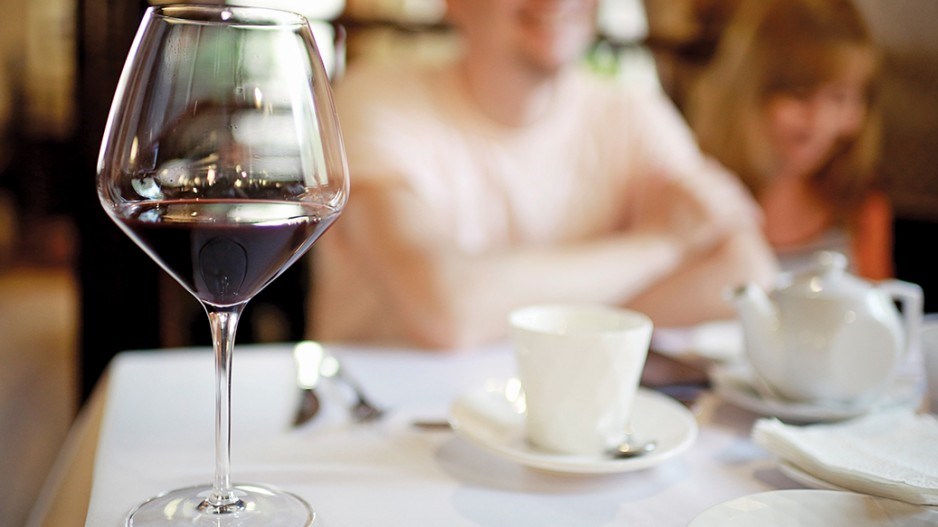B.C. restaurant owners have long fought against the province’s liquor laws, calling them unfair and tangled in Byzantine complexity.
But restaurateurs might be seeing some light at the end of the regulatory tunnel, says a key industry player.
Ian Tostenson, president and CEO of the BC Restaurant and Food Services Association, said he has reason to think the laws will change for the better before this year’s provincial election.
“We met with the ministers in government and the deputy ministers,” Tostenson said. “The way you get these things done is through co-operation and meeting with government. ... We’ve been at this for a couple years; I think that the government would probably want to bring it to some sort of decision prior to the spring election.”
Businesses and industry representatives like the restaurant association have been working with provincial government representatives to try to change current laws governing how restaurants purchase alcohol.
Wine industry lawyer Mark Hicken notes that the current system of government control over alcohol sale and distribution was initiated nearly 100 years ago. Unlike several other provinces and countries, B.C.’s provincial government controls liquor retail including sales to businesses and restaurants.
British Columbia’s Liquor Distribution Branch is responsible for both liquor retail and supplying the province’s restaurants. But restaurateurs face far more hurdles than other British Columbians when it comes to buying alcohol.
“When we tell people from New York, San Francisco and London what it’s like running a business, trying to forward our wine culture here, they say to us, ‘Why do you bother?’” said Kurtis Kolt, a Vancouver-based wine consultant and restaurateur.
Not only are restaurant owners restricted to buying beer, wine and spirits from B.C. liquor stores exclusively, but they are also restricted as to which stores they can buy from. Out of the almost 200 government-run liquor stores in the province, restaurants are allowed to choose only two to purchase from – one primary store and a backup.
But the regulation that is the chief sore point for B.C. restaurant owners’ bottom line is one that prevents them from buying alcohol from provincial liquor stores at wholesale prices.
“If you are buying a bottle of Merlot that’s on the shelf for $19.99, that is the exact same price that restaurants are purchasing for, whether they buy one bottle or 100 cases,” Kolt said.
Restaurants also face a different set of roadblocks when it comes to serving imported wines. For the majority of wine that is brought into the province, importers must store it in a specific government warehouse in Richmond, which they do not have access to. Restaurants must order the wine from the warehouse and are dependent on it for product delivery.
But orders often go unfilled, and Kolt said it can take several weeks for the wine to be delivered.
Last year, the province updated some of its liquor laws, but most of the changes focused on consumption and little change was made to the laws affecting how restaurants buy alcohol.
“There were a lot of changes made, but I think particularly on the restaurant industry side, they felt like they weren’t listened to,” said Kolt. “I can assure you that the restaurant industry was asking for discounts and wholesale prices, private stores were asking to sell to restaurants, and obviously none of those things happened.”
But strong industry support gives Tostenson confidence that the law will be changed before the province goes to vote in May.
“No, it won’t be an election issue,” said Tostenson. “I think they’ll try and get it done before the election one way or the other.” •




